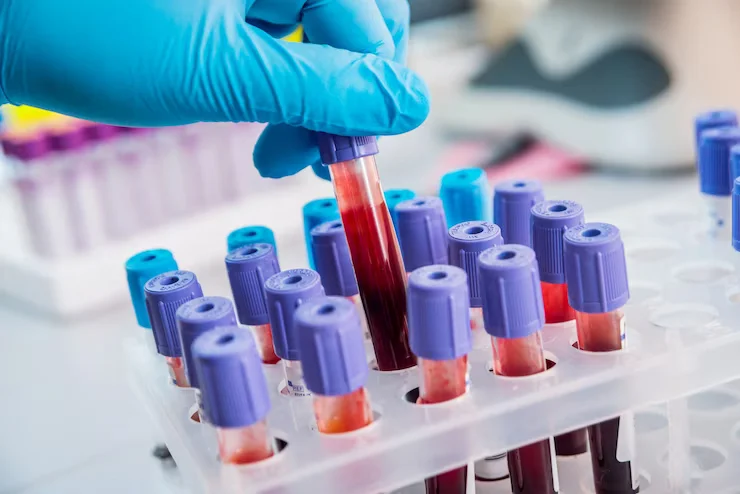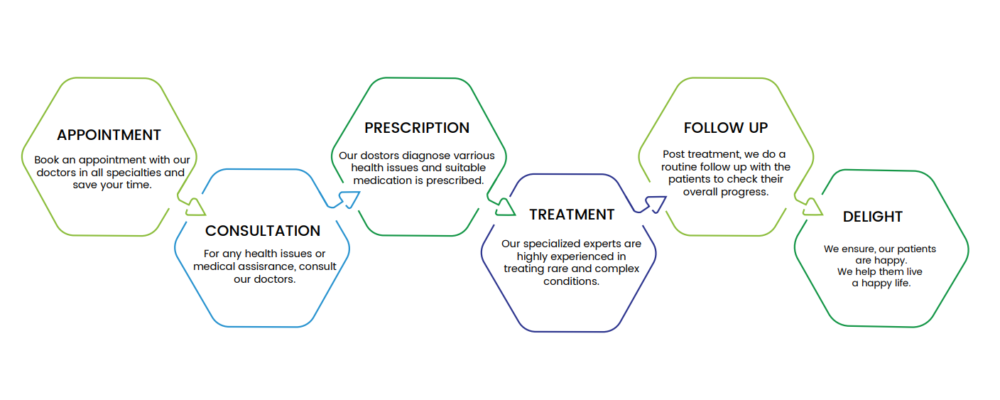Haematology
Haematology is the branch of medicine that focuses on the study, diagnosis, treatment, and prevention of diseases related to blood. This field encompasses various aspects of blood, including its components, such as red blood cells, white blood cells, platelets, hemoglobin, and plasma. Haematologists are specialists who manage and treat blood disorders ranging from common conditions like anemia to complex diseases such as leukemia and hemophilia. Their expertise is critical in understanding the mechanisms of blood diseases and developing effective treatment strategies.
Blood Components and Their Functions
Blood is composed of several key components, each playing a vital role in maintaining overall health:
- Red Blood Cells (Erythrocytes): These cells are responsible for transporting oxygen from the lungs to the rest of the body and returning carbon dioxide to the lungs for exhalation. Hemoglobin, the oxygen-carrying protein in red blood cells, is crucial for this function.
- White Blood Cells (Leukocytes): These cells are part of the immune system and help protect the body against infections and foreign invaders. There are several types of white blood cells, including neutrophils, lymphocytes, monocytes, eosinophils, and basophils, each with specific roles in immune response.
- Platelets (Thrombocytes): Platelets are involved in blood clotting and wound healing. They gather at the site of a blood vessel injury, stick together, and form a clot to prevent excessive bleeding.
- Plasma: This is the liquid component of blood that carries cells, nutrients, hormones, and waste products throughout the body. Plasma also contains clotting factors and proteins essential for maintaining blood pressure and volume.
Common Blood Disorders
Haematology covers a wide range of blood disorders, each requiring specific diagnostic and therapeutic approaches:
- Anemia: A condition characterized by a deficiency in red blood cells or hemoglobin, leading to reduced oxygen transport. Causes of anemia include iron deficiency, vitamin B12 deficiency, chronic diseases, and genetic disorders such as sickle cell anemia and thalassemia.
- Leukemia: A type of cancer that affects the blood and bone marrow, leading to the overproduction of abnormal white blood cells. Leukemia is classified into several types, including acute lymphoblastic leukemia (ALL), acute myeloid leukemia (AML), chronic lymphocytic leukemia (CLL), and chronic myeloid leukemia (CML).
- Lymphoma: A group of blood cancers that develop in the lymphatic system. The two main types are Hodgkin lymphoma and non-Hodgkin lymphoma, each with distinct characteristics and treatment protocols.
- Hemophilia: A genetic disorder that impairs the blood’s ability to clot due to a deficiency in specific clotting factors. This condition leads to prolonged bleeding and requires ongoing management with clotting factor replacement therapy.
- Thrombocytopenia: A condition characterized by a low platelet count, leading to increased risk of bleeding and bruising. Causes can include bone marrow disorders, autoimmune diseases, and certain medications.
Diagnostic Techniques in Haematology
Haematologists use various diagnostic techniques to identify and monitor blood disorders:
- Complete Blood Count (CBC): A common test that measures the levels of red blood cells, white blood cells, and platelets, providing essential information about overall blood health.
- Blood Smear: A test where a drop of blood is spread on a slide and examined under a microscope to assess the shape and appearance of blood cells, helping to diagnose conditions like anemia and leukemia.
- Bone Marrow Aspiration and Biopsy: Procedures that involve extracting a small sample of bone marrow to examine the production and condition of blood cells. This is crucial for diagnosing leukemia, lymphoma, and other marrow-related disorders.
- Coagulation Tests: Tests that evaluate the blood’s ability to clot, such as prothrombin time (PT) and activated partial thromboplastin time (aPTT), are essential for diagnosing bleeding disorders like hemophilia.
Treatment Approaches in Haematology
Treatment of blood disorders varies widely based on the specific condition and its severity:
- Medication: Treatments may include iron supplements for anemia, chemotherapy for leukemia and lymphoma, and clotting factor replacement for hemophilia.
- Blood Transfusions: Used to treat severe anemia, thalassemia, and other conditions requiring an increase in red blood cells or platelets.
- Bone Marrow Transplant: A procedure that replaces damaged or diseased bone marrow with healthy stem cells, commonly used in the treatment of leukemia and lymphoma.
- Targeted Therapy and Immunotherapy: Advanced treatments that target specific molecules or pathways involved in cancer cell growth, providing a more precise approach to treatment with potentially fewer side effects.
Our highly specialized Haematologist at Medhelp International offers:
- CBC
- ESR
- BLOOD GROUP
- PT/APTT
- INR
- FLUID R/E
Why Choose Medhelp International for Haematology Services?
Medhelp International is renowned in Islamabad for its excellence in Haematology care, and for good reasons:
Expert Hematologists: Our team consists of highly skilled and experienced Hematologists who specialize in diagnosing and treating a wide range of blood-related issues. They are dedicated to staying updated with the latest advancements in haematology to ensure the best care for our patients.
State-of-the-Art Laboratories: We have equipped our facilities with state-of-the-art diagnostic laboratories, where we conduct various tests to diagnose and monitor blood disorders, ensuring precise evaluations.
Comprehensive Services: At Medhelp International, we offer a wide range of haematology services, including:
- Blood Tests and Diagnostics: We provide comprehensive blood testing for various conditions, including anaemia, blood cancers, and coagulation disorders.
- Thalassemia Care: Our specialists offer comprehensive care for thalassemia patients, including regular transfusions and iron chelation therapy.
- Hemophilia Management: We provide expert care for patients with bleeding disorders, offering clotting factor replacement therapies.
- Bone Marrow Evaluation: We conduct bone marrow aspirations and biopsies when necessary for diagnosing blood disorders.
- Blood Transfusions: Our facilities are equipped to provide safe and timely blood transfusions when required.
- Iron Deficiency and Anemia Management: We offer treatments and guidance for individuals with iron-deficiency anaemia.
Patient-Centric Approach: At Medhelp International, we prioritize our patients’ concerns and well-being. We take the time to understand your medical history, symptoms, and concerns to provide personalized, compassionate care.
Haematology Care for Everyone
We believe that blood health is vital for everyone’s overall well-being, regardless of age or gender. Blood-related issues do not discriminate, and neither do we. Our services are accessible to all individuals, both men and women because blood health is a universal concern. Our experienced Haematologists, advanced laboratories, and patient-focused approach make us the top choice for haematology healthcare services in Islamabad. Don’t wait to address your blood-related health concerns – reach out to us today for a comprehensive evaluation and personalized care.


Medhelp International Process


